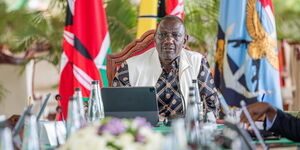The Office of Director of Public Prosecutions (DPP) has come up with a strategy where suspects will be given an opportunity to confess to their crimes in exchange for a reduced number of charges or jail time.
If a suspect enters into a plea deal with the prosecution, they will be considered guilty and their conviction will still appear in their criminal record.
The move will help prosecute corruption cases quicker as they will be concluded easily as opposed to when they go to full trial.
In the strategy, suspects will also be required to surrender information regarding their accomplices and help in tracking down property acquired using proceeds of crime.
DPP Noordin Haji has, however, expressed some concerns with the plan by explaining that some individuals would use the strategy to circumvent the law.
“The only fears we have is that if this programme is not used well it would lead to abuse of court process, hence the need to put in necessary policies to safeguard it,” noted the DPP.
According to his office, the programme is expected to slash the number of cases by more than half.
A good example is a case involving Ibrahim Akasha and Baktash Akasha who were notorious for trafficking drugs into the US.
In their plea deal, they admitted to drug trafficking and revealed information about their narcotics trade, that will be helpful to the US Department of Justice.
Part of the information that they surrendered includes details of Kenyan politicians and government officials who they cooperated with, in their criminal activities.












